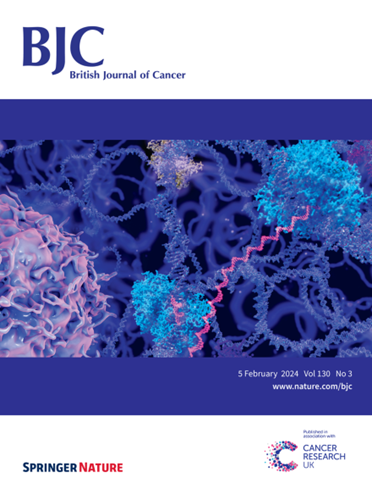了解乳腺癌的遗传结构:全蛋白质组关联研究如何做出贡献?
IF 6.4
1区 医学
Q1 ONCOLOGY
引用次数: 0
摘要
蛋白质组关联研究(PWAS)解决了转录后修饰的空白,这是以前的基因组和转录组关联研究无法捕捉到的。Zhao和他的同事进行了第一个基于乳腺组织的PWAS,并确定了与乳腺癌风险相关的蛋白质,为蛋白质表达在乳腺癌发展中的作用提供了见解。本文章由计算机程序翻译,如有差异,请以英文原文为准。
Understanding genetic architecture of breast cancer: how can proteome-wide association studies contribute?
Proteome-wide association studies (PWAS) address gaps in post-transcriptional modifications that previous genome- and transcriptome-wide association studies could not capture. Zhao and colleagues conducted the first breast tissue-based PWAS and identified proteins associated with breast cancer risk, providing insights into the role of protein expression in breast cancer development.
求助全文
通过发布文献求助,成功后即可免费获取论文全文。
去求助
来源期刊

British Journal of Cancer
医学-肿瘤学
CiteScore
15.10
自引率
1.10%
发文量
383
审稿时长
6 months
期刊介绍:
The British Journal of Cancer is one of the most-cited general cancer journals, publishing significant advances in translational and clinical cancer research.It also publishes high-quality reviews and thought-provoking comment on all aspects of cancer prevention,diagnosis and treatment.
 求助内容:
求助内容: 应助结果提醒方式:
应助结果提醒方式:


